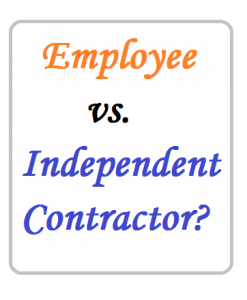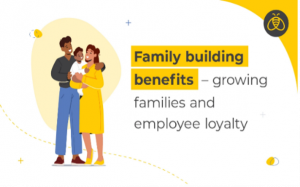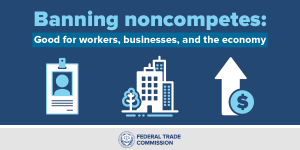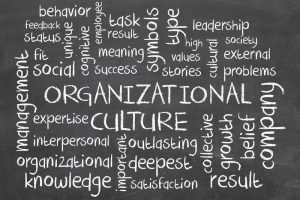In Part 1, I provided background and a definition of a HRM strategic plan, as well as 6 important plan aspects and its 5 key components. Part 2 will address the following:
- 7 steps in developing the plan
- 7 benefits of creating it
PLAN DEVELOPMENT STEPS
- 1) Do a strengths, weaknesses, threats, and opportunities (SWOT) analysis
- A SWOT analysis allows organizations to visualize their strengths, weaknesses, threats, and opportunities. Its purpose is to help employers learn how these elements impact HR processes. It’s also a beneficial tool for solving problems with recruitment and talent acquisition.
- HR teams should know about internal and external factors that require implementation. Understanding how these adaptations impact HR saves companies time and energy.
- 2) HR leaders can ask these questions to learn about their company’s needs:
- How do target candidates view the organization?
- In what areas does HR currently underperform?
- How can the company use HR outside of what they’re doing?
- What achievements has HR made?
- What resources does the HR department lack?
- 3) Observe emerging HR trends
- While teams shouldn’t base all their strategies on emerging trends, paying attention to them helpful. New HR trends include new developments and technologies that could automate processes.
- Other HR advances involve popular work arrangements, employee benefits trends, and artificial intelligence usage. Being aware of common HR practices or innovations can aid teams in planning.
- 4) Determine long-term goals
- An HR strategy is inherently long-term. However, plans can fall flat without considering the company’s future goals. HR professionals must use this strategy to align with existing business objectives. That way, all departments move forward in the same direction.
- Additionally, plans need to be adjustable. HR needs to remain aligned if results are unexpected or the company’s goals shift. Employers should encourage employees to always leave room for adjustments.
- 5) Get management buy-in
- An HR strategy won’t work without the team’s approval. It requires resources, skilled talent, and internal support. This backing only comes from getting management buy-in.
- An HR team can show the importance of carrying out the strategy by demonstrating how it delivers value. Team members can discuss how the strategy boosts organizational goals, employee performance, and workforce planning.
- These meetings also offer a chance for HR to answer questions, clarify points, and explain what they’ll do to make this successful. Fielding questions from C-suite executives can ease strategy concerns. It can also make them more passionate about the plan because it will help the business flourish.
- 6) Upskill your HR team
- An HR strategy can’t accomplish its mission without a proper team. Companies must ensure the best HR professionals implement and execute the plan.
- Team members must understand the organizational goals and HR initiatives and how they work together. They must also know how to identify gaps and have ideas to fix them.
- 7) Monitor HR analytics
- Companies should monitor every action to learn its impacts. To do this, employers can set quantitative key performance indicators to measure success. Observing HR initiatives is an ongoing process, requiring regular check-ins. Employers can make updates if the HR strategy isn’t delivering the desired results.
- Key HR analytics include:
- HR Team budget & actual expenses:
- As a percentage of total organization revenue
- Per full-time employee equivalency
- # of HR Team FTEs per employee population
- Turnover and retention rates
- Internal promotion rate
- Absence rate
- Employee engagement index
- Employee satisfaction score, including at supervisor, manager, director & executive levels
- Employee feedback via various methods (e.g., stay interviews, exit interviews, 1 on 1’s skip, meetings, informal interaction)
- HR Team budget & actual expenses:
BENEFITS OF A STRATEGIC HR PLAN:
Some of the advantages companies having established plan include:
- 1) Ensuring the HR function is in synch with the company/organization as a whole.
- Otherwise, the HR function’s effectiveness & value is greatly diminished.
- 2) Talent attraction and employee retention
- Successful companies understand the importance on attracting top talent. Successful leaders use hiring as more than a tool to quickly fill gaps. They hire to achieve their company’s goals.
- They also create the right environment and take the right actions to cause employees to desire to stay.
- 3) Reduced turnover
- Placing employees in roles that match their skills and experience helps them stay at their companies longer. Successful leaders use hiring as more than a tool to quickly fill gaps. They hire to achieve their company’s goals.
- 4) Improved employee engagement
- A well-designed HR strategy includes measures to enhance employee engagement and satisfaction.
- Engaged employees can be more productive and contribute positively to the organization’s success.
- 5) Focused compliance efforts
- Employers can enhance risk management and compliance with an HR strategy and HR compliance checklist.
- This plan ensures business and hiring practices follow labor laws, regulations, and industry standards. By paying attention to legal issues, employers reduce the risk of receiving fines and penalties.
- 6) Better policy management
- Every business needs processes and policies to function. The same goes for HR departments. Companies can effectively track progress by aligning business goals with HR procedures. Sturdy policies can also make it easier to complete regular reviews and update recruitment efforts.
- 7) Minimized business disruptions
- Creating business continuity through planning reduces the number of disruptions teams experience.
- Proactive preparation ensures businesses can keep moving forward even when obstacles appear. If a business does have to rebuild at any point, an effective HR plan can be a great foundation.
Author: Salvatore LoDico, SPHR
The HR Godfather TM
CEO, Trinity HR Consulting, Inc
Trinity HR provides retained searches and a full range of other HR management consulting services & solutions to clients throughout the US. Our clients include:
- Large public & private corporations, start-ups, SMBs, start-ups , & various size family-owned businesses & NFPs
- Diverse industries — manufacturing & providers of services
To schedule a NO COST, NO OBLIGATION conversation about your challenges & opportunities, plus how our Team’s expertise may be helpful, email me at SalLoDico@TrinityHR.net or call me at 856.905.1762.
YOU HAVE OPPORTUNITIES…TRINITY HAS PATHS FORWARD!
 As stated in Part 1, one of the most critical decisions you’ll face is how to grow your company. Organic growth or acquisitions or both?
As stated in Part 1, one of the most critical decisions you’ll face is how to grow your company. Organic growth or acquisitions or both?
 Talent searches correctly focus on finding candidates with the right job experience, the needed compentencies, knowledge (including education) & the individual’s personal attributes. All of these criteria are obviously important & needed to be thoroughly assessed, but there is one critical indicator of probability of success that is often overlooked.
Talent searches correctly focus on finding candidates with the right job experience, the needed compentencies, knowledge (including education) & the individual’s personal attributes. All of these criteria are obviously important & needed to be thoroughly assessed, but there is one critical indicator of probability of success that is often overlooked. All employers who retain workers to perform jobs for their business need to establish if those workers are employees or independent contractors. Such classification continues to be one for which employers are commonly found to be out of compliance.
All employers who retain workers to perform jobs for their business need to establish if those workers are employees or independent contractors. Such classification continues to be one for which employers are commonly found to be out of compliance.
 With 2024 quickly coming to a close, it is a very important & busy time for HR professionals. Trinity has prepared this partial year-end checklist as a source of what processes and actions an HR Team may need to review and complete before year-end. Completion is essential in order to finish the year strongly and to ensure compliance with legal requirements that may be applicable to their organization.
With 2024 quickly coming to a close, it is a very important & busy time for HR professionals. Trinity has prepared this partial year-end checklist as a source of what processes and actions an HR Team may need to review and complete before year-end. Completion is essential in order to finish the year strongly and to ensure compliance with legal requirements that may be applicable to their organization. BACKGROUND
BACKGROUND The September 4, 2024 effective date of the Federal Trade Commission’s rule that would essentially INVALIDATE ALL PRE-EXISTING U.S. NON-COMPETE AGREEMENTS & BAN FUTURE ONES is rapidly approaching. It will take effect UNLESS one of the following occurs:
The September 4, 2024 effective date of the Federal Trade Commission’s rule that would essentially INVALIDATE ALL PRE-EXISTING U.S. NON-COMPETE AGREEMENTS & BAN FUTURE ONES is rapidly approaching. It will take effect UNLESS one of the following occurs: SUGGESTED STEPS
SUGGESTED STEPS